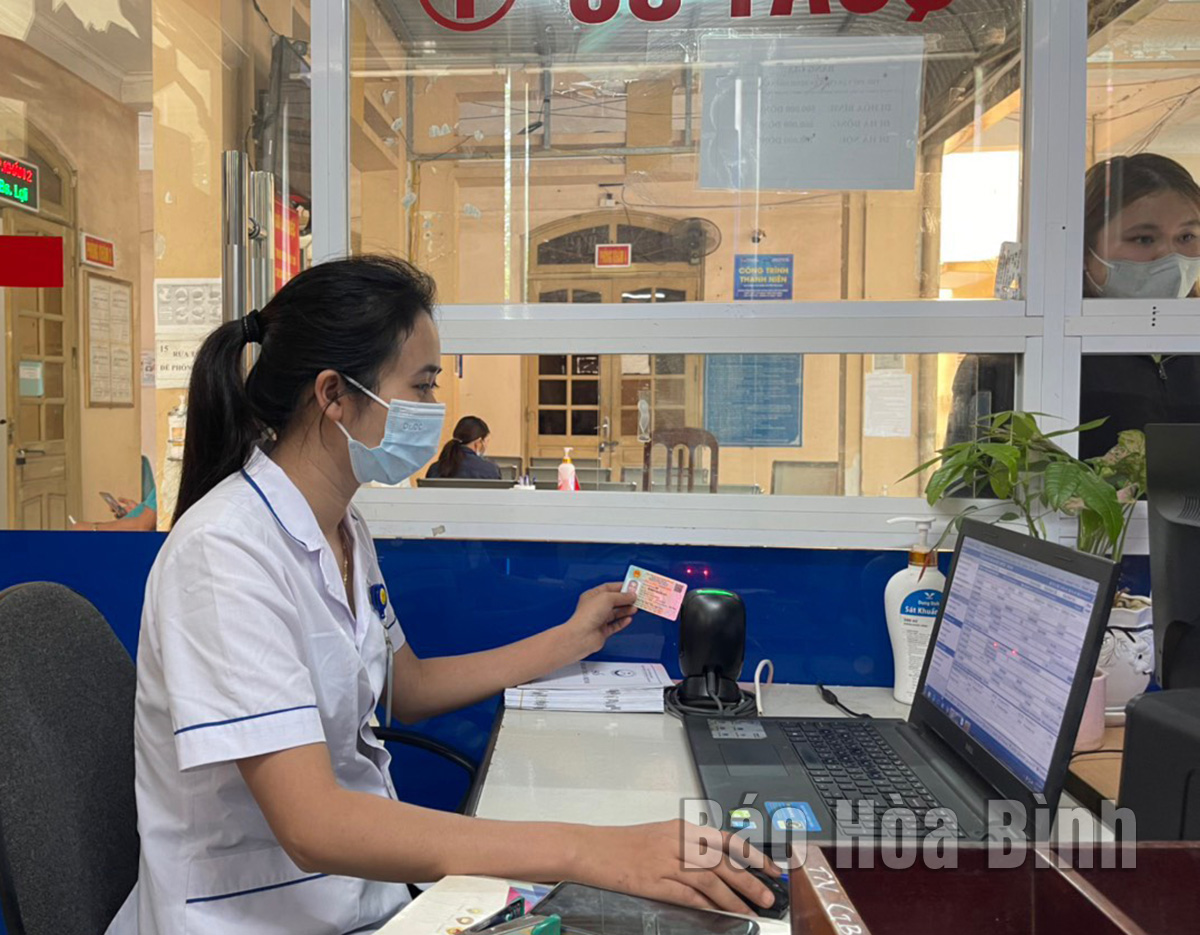
(HBO) - The use of chip-based citizen ID cards to replace paper health insurance cards in medical facilities in Hoa Binh is expected to be the start of a roadmap for the gradual replacement of paperwork in health care procedures, thus reducing the waste of time and money of local residents.
Under the Government's Project No. 06, the
province’s health sector set a target of having 100% of medical establishments
accept the use of chip-based citizenID cards in examination and treatment
services instead of paper health insurance card.
Photo: Local people register for medical
examination and treatment with health insurance by chip-based citizenID
cards at Luong Son district’s health centre.
As many as 232 medical stations in Hoa Binh have
accepted the use of chip-based citizenID cards in place of traditional
health insurance cards, bringing convenience for local residents and ending the
situation that patients use other people's health insurance cards to get
insurance-covered medical treatment or cheat to take advantage of health
insurance funds.
The provincial General Hospital has been
equipped with more than 10 chip-based citizenID card readers.
Recently, the ratio of patients
usingchip-based citizenID cards to access medical treatment covered
by health insurance has increased.
Luong Son district’s health centre leads medical
establishments in Hoa Binh in applying chip-based citizenID cards for
registering medical examination and treatment services, with 8,202 successful
transactions out of 11,268 attempts. The unsuccessful transactions were due to
insufficient data in the database.
The centre has been equipped with five ID card
readers, reducing waiting time for patients.
According to statistics of the Vietnam Social
Security’s chapter in Hoa Binh, so far, there have been nearly 562,000
chip-based citizen ID cards synchronized with insurance data. All public
healthcare facilities at district level and above have implemented lookups of
health insurance information via chip-based citizen ID cards with a success
rate of 61.5%./.
In late March, 29 labourers from Da Bac district were sent to work as seasonal farm workers in Buyeo county, Chungcheongnam province, the Republic of Korea (RoK). Upon arrival, they quickly settled into their jobs, enjoying good working conditions and benefits, with wages aligned with the terms of their signed contracts. The programme is now being expanded, with relevant departments and sectors actively seeking additional seasonal employment opportunities in various localities across the RoK.
Luong Son Industrial Park has invested in standardised wastewater and emissions treatment systems, enforced tight emission controls, reduced noise, dust, and solid waste, and expanded green spaces, contributing to protecting the environment and promoting sustainable development.
Hoa Binh police are collecting public feedback on amendments to the 2013 Constitution via the national identification app VNeID. This innovative approach marks a giant leap towards modernising grassroots democracy and enhancing transparency in public consultation.
A total public investment capital of 113 billion VND (over 4.3 million USD) was disbursed for a project to upgrade infrastructure and stabilise residents in the vicinity of the Da River reservoir between 2021 and the first quarter of 2025, giving a facelift to local rural areas and improving the quality of people's life.
Since the end of 2023-2024 academic year, Cu Yen Primary and Secondary School in Luong Son district has deployed e-study records for all of its 500 primary students, said the school principal Nguyen Thi Tuyen.
The Labour Federation of Hoa Binh city has actively worked to protect the rights and welfare of nearly 8,000 local workers and union members at 152 grassroots unions. Through regular dialogues, education campaigns, and welfare programmes, the federation has helped foster stable, progressive labour relations.



